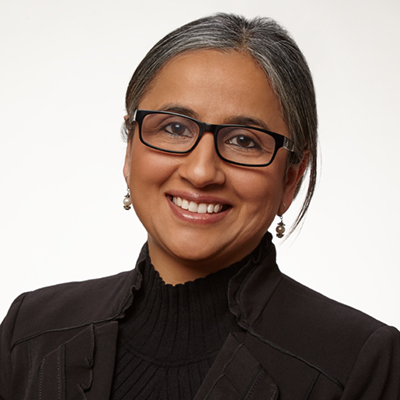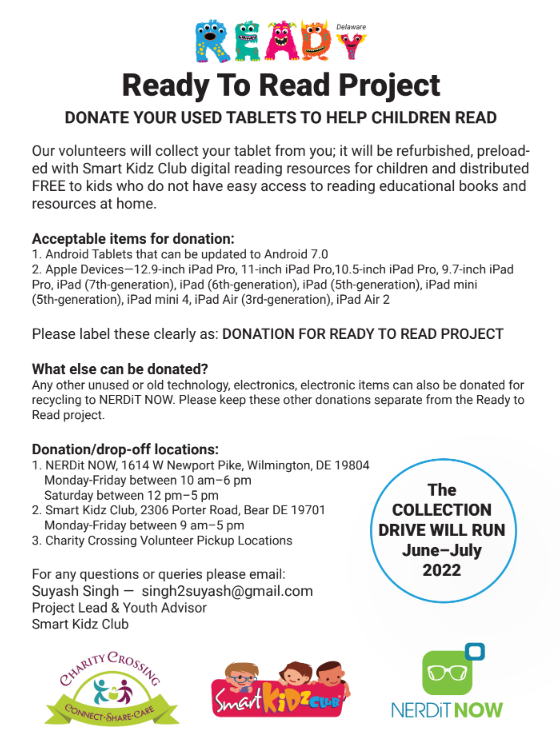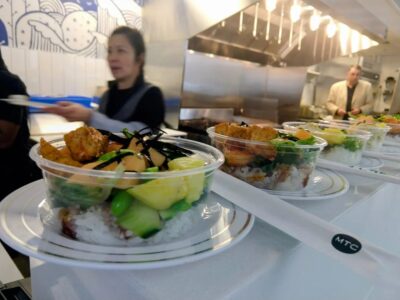
This editorial article is a part of Tech Education Month 2022 of Technical.ly's editorial calendar. This month’s theme is underwritten by Verizon 5G. This story was independently reported and not reviewed by Verizon before publication.
There’s a mountain of edtech resources out there. Kid-facing apps make up a large chunk of the industry worth billions, and it’s a category that only continues to grow since the pandemic disrupted children’s education of everywhere.
Smart Kidz Club, a preschool-through-elementary-aged learning application that’s also been known to help adults improve their English skills, is different, according to CEO and founder Surinder Sharma. She’s based in Bear, with team of seven plus contractors and talent.
Google Play, apparently agrees. The company selected Smart Kidz Club as one of just 153 apps in the United States as part of its #WeArePlay campaign celebrating app creators from all 50 states and the District of Columbia.
“The Google Play marketing team reached out to me and said, ‘We are interested in featuring and spotlighting the Smart Kidz Club app from Delaware, is it OK with you?’ It was definitely quite a surprise,” Sharma told Technical.ly. “Google is actively trying to promote its developer and app community.”
The campaign, which launched with a social media hashtag on July 4 and has given Sharma’s app an uptick in downloads, puts faces to apps in the Google Play store that are, as they put it, “working to make a change in the world.”
So how, exactly, is Smart Kidz Club different?

Surinder Sharma. (Courtesy photo)
First an explanation of what Smart Kidz Club is: a library of original digital books covering a variety of educational topics, with activities, games and quizzes built in. The books, about 85% of which are nonfiction, are written and illustrated by a pool of contracted talent. The books also have audio versions read by voice actors.
The original content is one thing that helps Smart Kidz Club stand out, but another big difference is what it doesn’t use — animation.
“I’ve worked closely with Dr. Roberta Golinkoff, the award-winning literacy professor and the chair of the School of Education at the University of Delaware,” Sharma said. “She has co-published a paper with several other researchers which clearly gives guidelines on how to put education in educational apps. What they discovered was that there are lots of apps in the app stores, and all of them claim that they’re educational, but because of the way that they’re designed, they don’t have much educational value.”
The research, including a 2018 study performed by Dr. John Hutton, a researcher and pediatrician specializing in “emergent literacy” and studying MRI brain scans, found that the most effective way to teach young children is a combination of audio narration with static illustrations. Dr. Hutton calls it a “Goldilocks effect”: When 4-year-olds were presented with story narration that included dynamic animation, it was “too hot,” or too stimulating, making it harder for them to fully understand. Audio only was “too cold,” or difficult to understand due to the lack of visual context. Audio with static illustration — narrated picture books — were “just right.”
In essence, the app uses technology to deliver an old-school technique, with research backing up the idea that more is not always better.
That’s not to say there are no games on the app. Math lessons, for example, are gamified, and kids can earn “coins.” But it stays away from ads and keeps the reading free of distractions, including by making it a point to use real people reading the books rather than automated voices.
“We use human narration in all of our books,” Sharma said. “This is mostly helpful for kids who are beginner readers who need to hear the correct pronunciations and, specifically, for kids whose parents are non-native English speakers. One reviewer from France said that this is an awesome app not only for kids, but for adults like [herself] who was learning English.”
Making Smart Kidz Club accessible
Smart Kidz Club partners with organizations internationally, including Eduriea Future in Nigeria and iGroup (Asia Pacific) Ltd. in Japan and South Korea.
On the US app, some content is free, but full access to the library and activities requires a monthly subscription that costs about the same as a television streaming service. Sharma is aware that even that much can be too expensive for a family struggling to make ends meet — and that struggling families also may not have parents with the time to read books to the kids or take them to library story time, let alone have a tablet or phone for a child to use as a learning device.
Accordingly, Smart Kidz Club has partnered locally with organizations such as REACH Riverside to increase access to the app, and recently stepped it up with a collaboration with Bear’s Charity Crossing and NERDiT Now, called the Ready to Read project. For its part, NERDiT Now refurbishes donated devices, which are then loaded with Smart Kidz Club and distributed to kids in selected communities for free.
Ready to Read’s biggest challenge is finding those old tablets for refurbishing. Sharma is hoping to get the word out to local companies that might have some obsolete tablets in storage, and even people who have just one old tablet they no longer use. Tablets can be dropped off at NerdIT Now in First State Plaza in Newport, Charity Crossing locations and the Smart Kidz Club office in Bear.
Details below:

Join the conversation!
Find news, events, jobs and people who share your interests on Technical.ly's open community Slack

Delaware daily roundup: Over 4,000 Black-owned businesses uncovered; Dover makes rising cities list; a push for online sports betting

Delaware daily roundup: Ladybug Fest illuminates small biz; Hahnemann Hospital's biotech future; intl. politics and a Middletown project

Delaware daily roundup: DE in DC for 'Communities in Action'; diversifying the coffee supply chain; Invista's future


